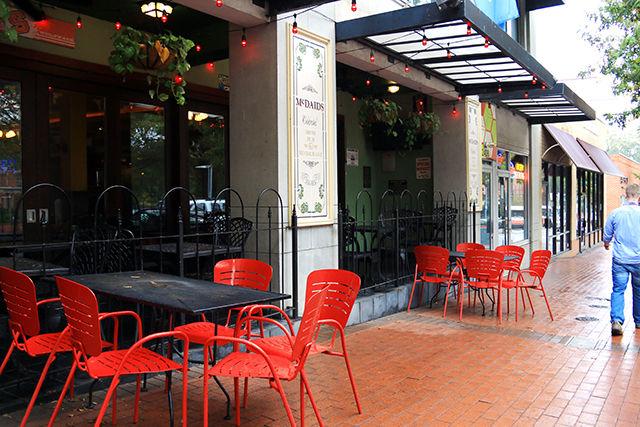Earlier this month, Raleigh’s City Council voted to extend the closing time for downtown businesses’ patios to 2 a.m. on weekends. This ruling loosened the outdoor seating restrictions that the council approved back in August after receiving a number of complaints regarding bar noise and drunken public disturbances.
The initial ordinance, which was meant to be a three-month trial period, received extensive vocal backlash from bar and restaurant owners who felt the ordinance would ultimately damage their bottom line. The majority of citizens living in downtown Raleigh agreed the ordinance wasn’t doing the city any good.
Jim Belt, president of Raleigh Downtown Living Advocates, sent an email to council members that outlined the findings of a survey conducted among residents of downtown. The email highlighted the generally negative response residents had to the patio ordinance.
“Nearly two thirds — 64 percent — of residents do not support the new ordinance, with the remaining third either supporting the ordinance in its current form or would support with minor changes,” the email read.
The email also included anonymous comments from residents taken during the survey, many of whom were upset that a vocal minority of downtown residents had taken to representing all Raleigh citizens in fighting for the ordinance.
Raleigh City Councilman Bonner Gaylord also agreed that the ordinance had failed to fulfill the purpose that it intended, and that residents of downtown Raleigh had not noticed a significant impact to the noise level.
“We voted to back off the ordinance based on the feedback we got over the last few months,” Gaylord said. “The council learned what was working and what wasn’t working.”
Gaylord did not support the ordinance when it first came to a vote. He felt it would be ineffective in dealing with the residents’ complaints. In an interview with Indy Week, he described it as “splitting the baby” because the noise level would then have two periods of high activity: once when people left the patios at midnight in search of another a new venue, and then again when all bar-goers took off at closing time at 2 a.m.
Business owners reported that the ordinance made their jobs more difficult and hurt their sales during the three-month period. Tyler Mills, co-owner and manager of McDaids Irish Pub on Hillsborough street, said that the ordinance especially cut into them during major events.
Mills said that Packapalooza is one of the busiest days of the year for his business, and that this year’s profit was significantly lower than previous years.
“During Packapalooza, we were told that we had to conform to new city standards and keep alcohol off the sidewalk,” Mills said.
Other business owners came forth with complaints regarding the new rules, including Alberto Alvarez, the manager of La Rancherita on Hillsborough street. Avalrez said that the restrictions on available space made it difficult to seat as many customers as they had previously at night.
“There’s not enough space on the patio,” Alvarez said. “I’m going to renovate.”
Gaylord said that the council considered all of the comments and statistics presented in the email brought forth by Belt as well as the concerns presented by business owners before coming to the decision to revoke the ordinance.
“We reviewed feedback all over the map before coming to a decision, surveyed residents did not report significant impacts,” Gaylord said.
Now that the ordinance has been struck down, it’s doubtful that businesses will have to adjust their property to adhere to restricted use of public space.
Nayja Peterson contributed to reporting.








